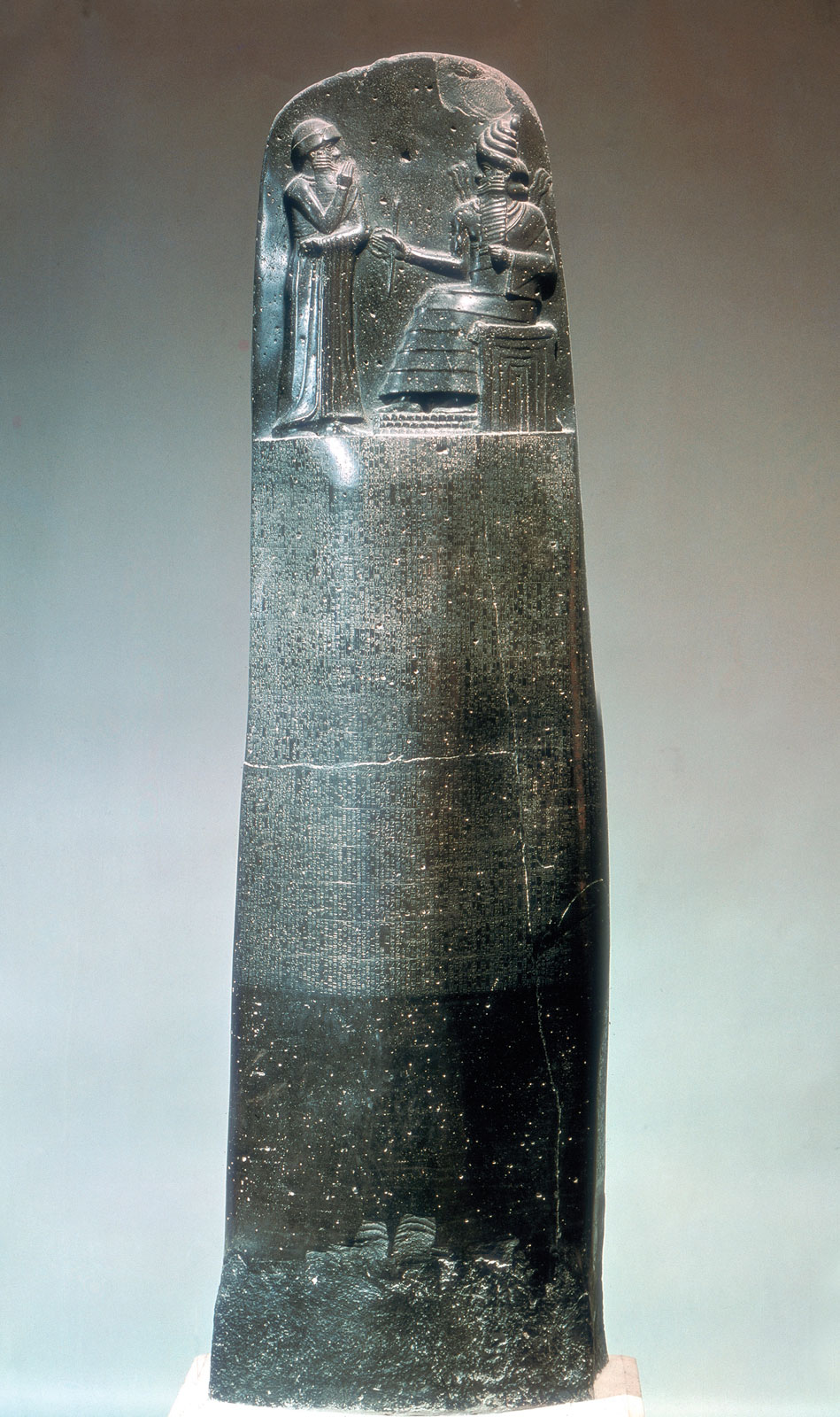Hammurabi
Hammurabi was the sixth, and probably most well-known king of the Babylonian Empire. He was born around 1810 BCE, and died at around 1750 BCE, at about 60 years old.
He became king after his father, Sin-Muballit, gave up the throne due to his old age and failing health in around 1792 BCE. He was the most successful leader of the
Babylonian Empire, conquering many nearby cities, and elevating Babylon to an actual empire, rather than keeping it as a small territory. Not only did he heavily
expand the territory of the Babylonian Empire, he also stabilized the empire greatly, and introduced many governmental systems and laws that were well-received.
The most famous of these is probably the Code of Hammurabi. Most other codes of law focused mainly on compensating the victim, rather than punishing the criminal.
The Code of Hammurabi did the opposite, and focused mainly on punishing the criminals that broke the code of law, which greatly deterred them within the empire.
Not only did this code have detailed punishments for crimes, it also was one of the first to establish that the suspect is innocent until proven otherwise (Renger).
On top of his code of laws, he also constructed many great projects within the empire, such as the Walls of Babylon. These walls helped to secure the empire
and defend it from the many hostile empires nearby (Renger).
 https://www.britannica.com/biography/Hammurabi#/media/1/253697/99581
https://www.britannica.com/biography/Hammurabi#/media/1/253697/99581

